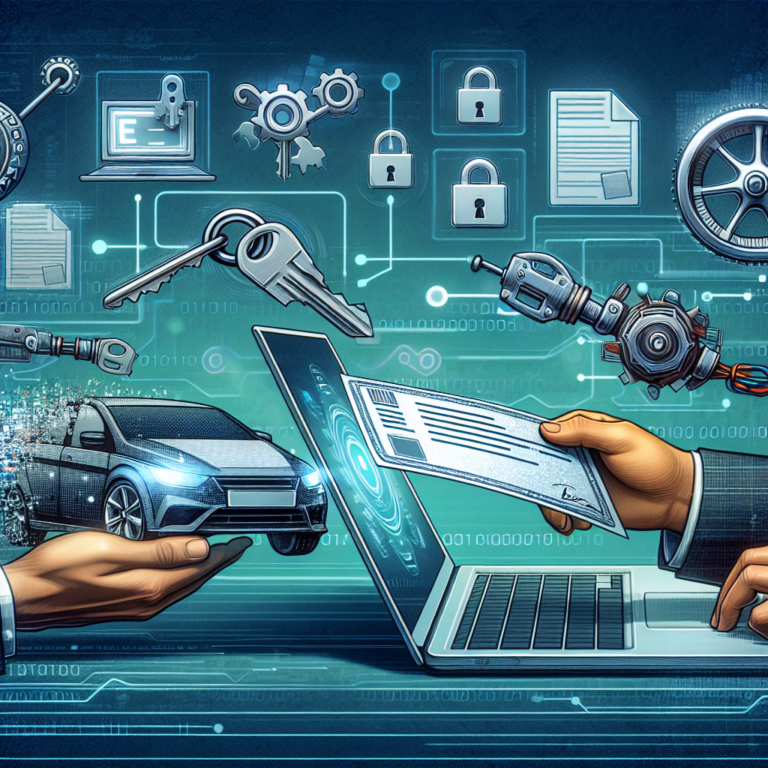The automotive industry has witnessed significant transformations in recent years, largely due to advancements in technology. One of the most impactful changes has been the introduction of electronic lien (E-lien) titles, a system designed to facilitate and streamline vehicle transactions. As car ownership and financing methods continue to evolve, understanding E-lien titles is essential for consumers, lenders, and dealerships alike. This article explores what E-lien titles are, their benefits, and the implications for vehicle transactions.
What is an E-Lien Title?
An E-lien title is a digital representation of a vehicle title that includes information on any liens (legal claims or loans) associated with it. Traditionally, lien title processes required paper documents, which could lead to delays, inefficiencies, and errors. The E-lien system leverages technology to improve this process by allowing lenders to electronically file and release liens through a secure, online platform.
How E-Lien Titles Work
The E-lien process typically involves several key steps:
-
Loan Origination: When a borrower finances a vehicle, the lender records the lien against the vehicle through the electronic system rather than on paper.
-
Electronic Title Creation: The vehicle title is created in digital format, linking it to the lienholder’s information. This title is stored in a secure database managed by the state’s Department of Motor Vehicles (DMV) or equivalent governmental authority.
-
Lien Management: Throughout the life of the loan, the lienholder can manage the electronic title, including making updates as necessary.
- Title Release: Once the loan is fully paid off, the lender can electronically release the lien, updating the vehicle’s title to reflect the absence of any encumbrances. The borrower can then obtain a clear title with ease.
Benefits of E-Lien Titles
1. Increased Efficiency
E-lien titles streamline the entire vehicle transaction process. By eliminating paper documentation, the time required to process liens and titles is significantly reduced. This efficiency benefits all parties involved, including consumers, lenders, and dealerships.
2. Enhanced Accuracy
With manual paper processes, there is always a risk of errors, whether in data entry or documentation. The electronic system minimizes these risks by utilizing automated processes and standardized forms, leading to improved accuracy in vehicle titles.
3. Simplified Record-Keeping
E-lien titles provide a centralized digital record of all liens associated with a vehicle. This centralization simplifies the management and retrieval of information, making it easier for lenders to access and update records.
4. Cost Reduction
By moving to an electronic system, organizations can reduce the costs associated with printing, mailing, and storing paper documents. For lenders, this translates to lower operational expenses, which may ultimately benefit consumers through reduced fees and charges.
5. Improved Security
E-lien titles offer enhanced security features compared to traditional paper titles. Digital records can be protected through encryption and secure access protocols, minimizing the risk of loss, theft, or forgery.
Implications for Vehicle Transactions
E-lien titles are poised to change the way vehicle transactions are conducted.
-
For Consumers: The process of buying or selling a vehicle becomes more straightforward. With faster title transfers and clearer records of ownership, consumers can have greater confidence in their transactions.
-
For Lenders: Financial institutions can streamline their operations, ensuring that they remain competitive in a rapidly evolving marketplace. The reduction in paperwork also means that lenders can devote more resources to customer service and innovative financing solutions.
- For Dealerships: Automotive dealerships can benefit from streamlined sales processes, enabling staff to close deals more quickly and efficiently. This efficiency can lead to improved customer satisfaction and potentially higher sales volumes.
Conclusion
E-lien titles represent a significant step forward in the modernization of vehicle transactions. By leveraging technology to streamline processes, enhance accuracy, and improve security, E-lien systems have the potential to revolutionize how consumers, lenders, and dealerships interact in the automotive marketplace. As this technology continues to gain traction, stakeholders in the automotive industry must familiarize themselves with E-lien titles to fully leverage their benefits and adapt to the future of vehicle transactions.


